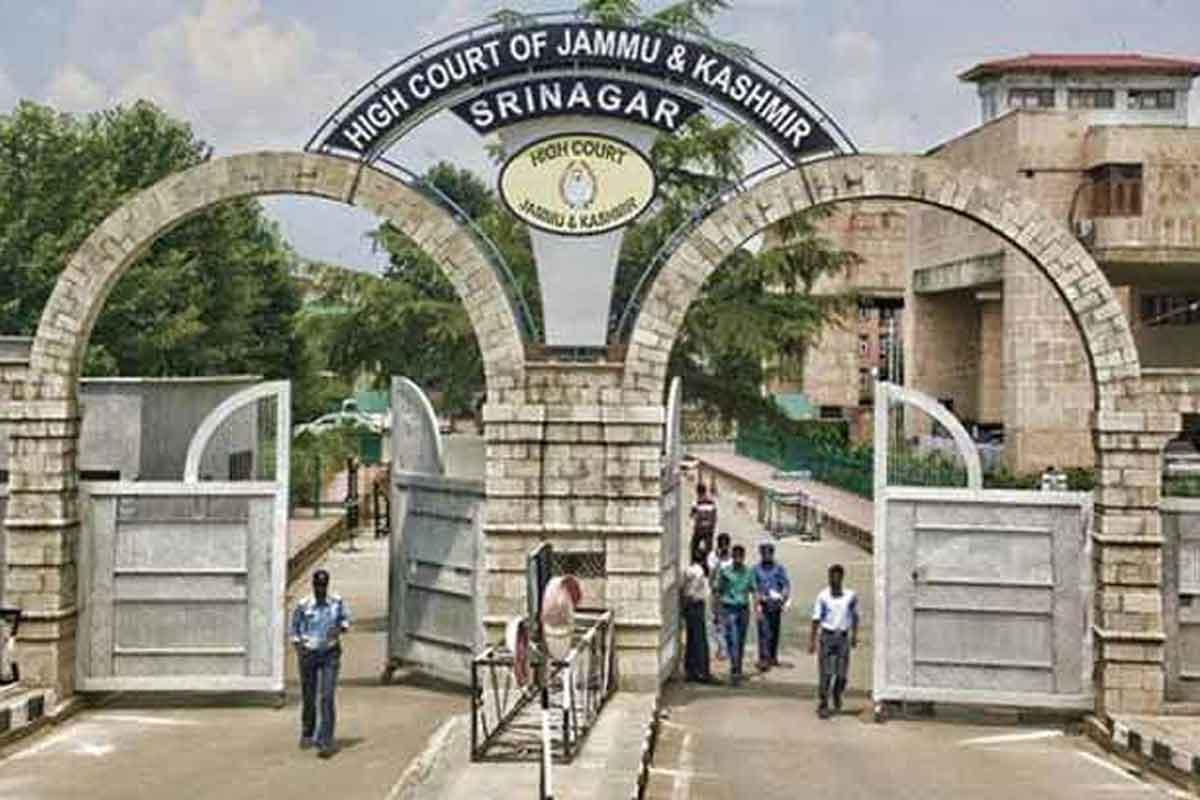Excelsior Correspondent
Srinagar, Nov 6: The High Court has recorded its displeasure over using the judicial process and lengthy litigation of 40 years by the tenant which has denied the access to justice to the litigant-landlord and said the delay of injustice under the cover of lengthy litigation needs to be removed.
Justice Ali Mohammad Magrey has dismissed the appeal of the tenants who were ordered to be evicted by the trial court in a basic litigation between litigant and the landlord. The tenant and landlord are in litigation over the property since the year 1983 when the landlord filed a suit for eviction before the trial court which ultimately was allowed in the year 2014.
Subsequently, the tenants went in appeal before the Appellate Court by filing a first appeal on 27.10.2014 2014/ 30.10.2015 which came to be dismissed in 2019. Against the dismissal of appeal, the tenants filed the instant second appeal in July, 2019, and the High Court in terms of order dated 24th December, 2019, stayed the operation of the impugned judgment and basic decree dated 28th July, 2014 which was continuing as on date. “Therefore, for the last almost four decades, the litigation has not yielded any fruitful results for the party who first approached the court with a suit for eviction and succeeded also”, Justice Magrey said.
Court further recorded the process of lengthy litigation as painful by recording that for almost four decades the tenants have continued their possession over the suit property by use of judicial process. “The respondent-landlord who had come to the court almost four decades before is exactly where he was at that point of time. His need to use and occupy his personal property is still being debated because of the lengthy litigation. His need must have dusted during the long interregnum. However, the dust needs to be removed to save it from getting completely buried underneath such dust”, read the judgment.
Justice Magrey on the basic verdict by the Trial Court as also the Appellate Court said while passing judgment and decree these courts have not granted any time to the tenant to vacate the suit property and since then the tenants are in use and occupation of the suit property for almost half a century, therefore, they do not deserve any further premium in vacating the suit property.
“The appellants, therefore, shall vacate and handover the possession of the suit property to the respondent-landlord within a period of two weeks. The respondent-landlord shall be free to take recourse of execution proceedings if the tenants fail to vacate and handover the possession of the suit property within the time allotted”, the court directed.
It is writ large, court added, on the face of record that the personal necessity of the landlord has been proved beyond any shadow of doubt as also the comparative advantage and disadvantage of the parties is thoroughly discussed.
“I do not see any ambiguity anywhere that would call for re-appreciation of evidence or call for reversal of concurrent findings even if there was a scope for doing so. The substantial questions of law framed by this Court in the instant appeal in terms of order dated 24.12.2019 do not favour the appellant-tenants as it has sufficiently come in evidence and reasonably explained by the Trial Court as also the Appellate Court that the prior notice has in fact been issued to the defendant and it qualifies a suit to be decreed against the tenants for eviction”, Justice Magrey concluded.
Referring the Supreme Court, Justice Magrey said, the apex court has held that the landlord does not need to lose his existing job, neither to resign nor to reach the level of starvation to contemplate that he must get possession of his premises for establishing a business.
The two tin roofed shops situated at Jawahar Nagar, Srinagar owned by the respondent-landlord who rented out the same to the tenants at a monthly rent for a period of one year in terms of lease deed dated 20th March, 1981, effective from 1st March, 1981.
The respondent-landlord issued a notice to the appellant-tenants for evicting the suit property after the lease expired through his advocate firstly on 26th February, 1982, thereafter, through registered AD notice dated 23rd December, 1982 projecting his personal requirement for the suit property and seeking payment of outstanding arrears of rentals also.
Since the possession was not delivered to the respondent-landlord constraining him to file a Suit for eviction before the trial court on 16th November, 1983, projecting that he requires the suit property for his personal requirement.
Trending Now
E-Paper


